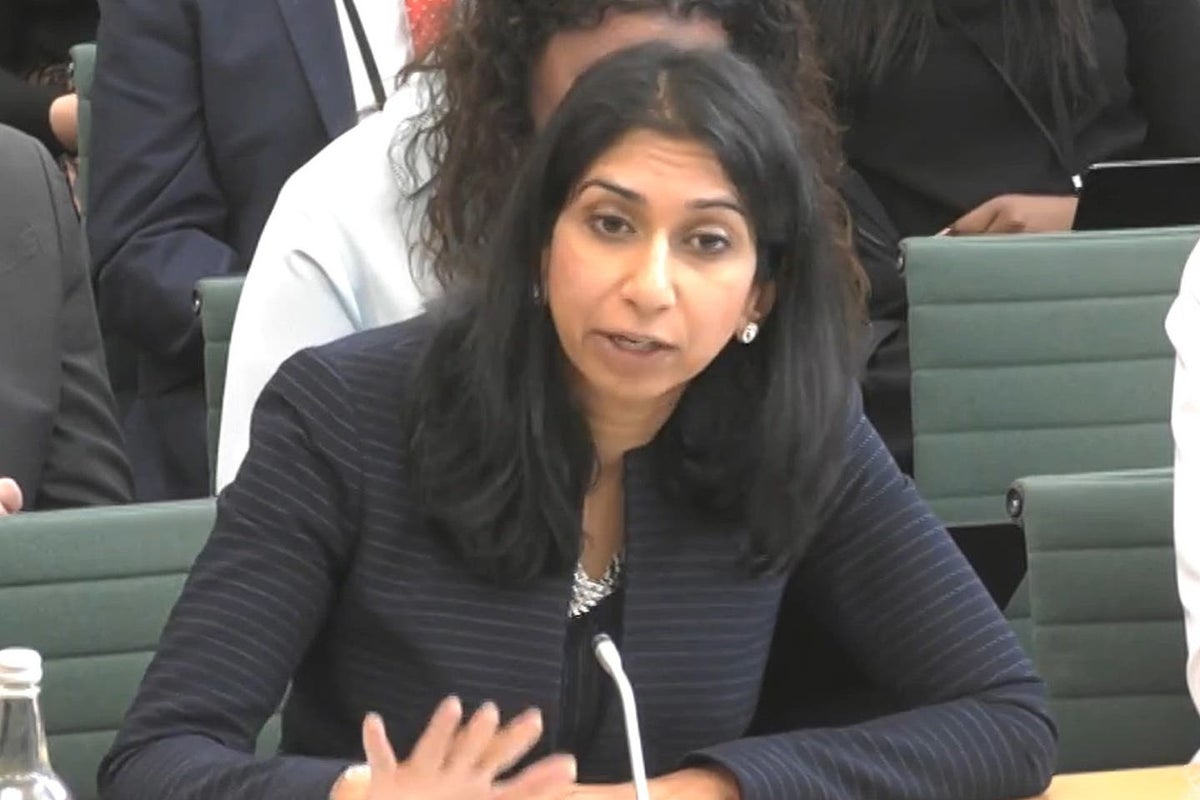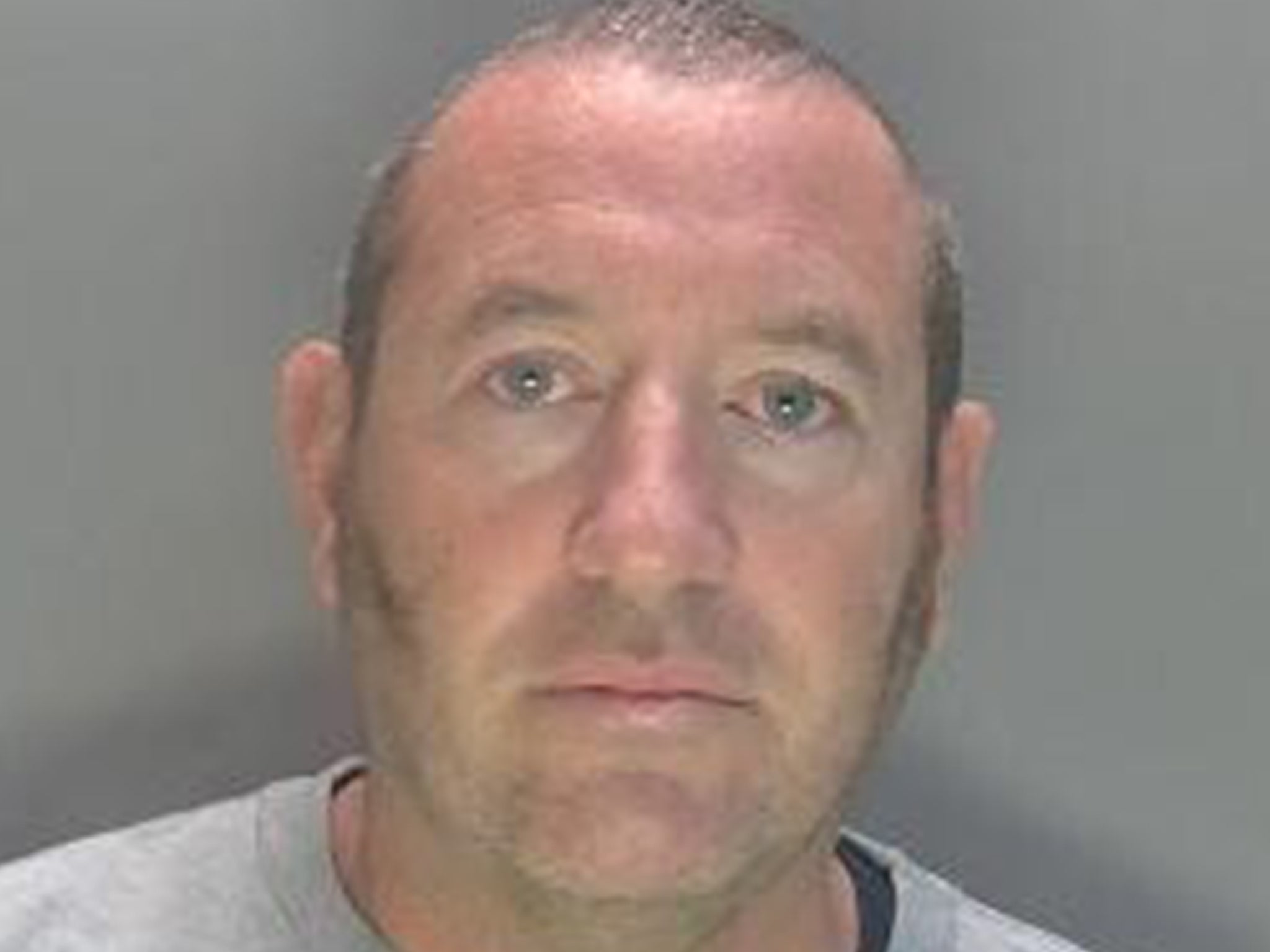
Officers who allowed serial rapist David Carrick to remain in the Metropolitan Police face no prospect of disciplinary action, after the force decided not to refer them to a watchdog.
The Independent understands that Scotland Yard flagged missed opportunities to throw Carrick out in 2019 and 2021 to the Independent Office for Police Conduct (IOPC) but did not identify the officers involved, meaning a misconduct investigation could not be launched.
Senior officers blame the processes in place when the Metropolitan Police was told of a domestic assault where Carrick grabbed his partner by the neck, and a later rape accusation, rather than individual actions.
The IOPC said it could not use its powers to investigate the force’s repeated decisions not to take action against Carrick because there was no misconduct allegation against officers, adding: “In accordance with the statutory scheme which defines our remit and powers, we will consider whether the IOPC is the appropriate body to carry out any further work to review how matters relating to Carrick were handled by police forces.”
The watchdog said it was conducting no ongoing investigations, and that although it found two officers who gave Carrick “words of advice” after he assaulted and harassed his partner in 2002 had a case to answer for misconduct, no sanction was possible because they have retired.
Despite coming to the attention of police again in 2004, 2009, 2016, 2017, 2019 and 2021 over incidents including domestic assaults at his home, Carrick was not prosecuted and Scotland Yard repeatedly decided that he had “no case to answer” for disciplinary proceedings.
Speaking at a press conference, assistant commissioner Barbara Gray said the Met’s Directorate Professional Standards had dealt with incidents individually rather than spotting an “escalating pattern” of abuse.
Asked why officers had decided Carrick had “no case to answer” for misconduct without looking at his lengthy record, she said: “There is no explanation I can provide.”
The 48-year-old, who is one of Britain's most prolific sex offenders, was left free to abuse and rape women for over 20 years before he was finally prosecuted.
All 49 offences, including 24 rapes, he admitted perpetrating against 12 women took place during his career in the Metropolitan Police - which let him join up in 2001 even after investigating him for harassing a former partner.
After the force admitted Carrick was known to police for at least nine incidents before his eventual prosecution, demands have been mounting for answers over why he was not previously charged or sacked.
The Independent has been told that there are no disciplinary investigations that could bring accountability for the officers who failed to stop him preying on women in a series of criminal investigations that ended with no action.
Hertfordshire Constabulary confirmed that it received a domestic abuse complaint over Carrick in 2009, from one of the victims he has now admitted offences against, and that in 2019 it responded to a “third party report” of domestic assault and criminal damage.
The force said the women involved in both incidents did not support police action at the time, and that following the 2021 rape report a victim initially withdrew her complaint, before pursuing it later that year.

“All of these cases have been reviewed with oversight from the IOPC and there were no issues identified,” a spokesperson added.
Hampshire Constabulary and Thames Valley Police also recorded incidents involving Carrick, in 2016 and 2017, but did not arrest him. Hampshire said a review of a stalking report had concluded that Carrick was “not responsible for the alleged offence”.
An IOPC spokesperson said: “Given concerns over the depth and breadth of Carrick’s offending, last year we wrote to all forces who had potentially previously come into contact with Carrick requesting they review those contacts to identify whether there were any failures to investigate or prosecute him and to seek assurance that any conduct issues identified would be referred to the IOPC.
“All forces have since confirmed those reviews are complete and there are no issues which meet criteria for a referral.”
During a debate in the House of Commons on Tuesday, MPs from all political parties demanded action.
Veteran Labour MP Harriet Harman, the mother of the House of Commons, called for the Metropolitan Police to publish a report on why “Carrick was looked at and nothing was done”.
“It is not just about change in the future but dealing with those individuals who are currently in senior and management positions in the Met, who seemed to think it was alright for Carrick to be promoted,” she added.
“The suitability of those officers ought to be examined by the Met and we need transparency about that… they were concluding in the perpetuation of these crimes.”
Conservative MP Tim Loughton questioned how the alarm was not raised by police officers who nicknamed Carrick “b*****d Dave” and said it was “not suitable to put officers accused of serious offenders on light duties”.
Fellow Tory James Daly said there had been “no suggestion of accountability” for the Metropolitan Police officers who allowed Carrick to remain a threat to women and girls, adding: “They should be sacked.”
The home secretary announced a review of the police disciplinary process, which will consider public calls made by commissioner Sir Mark Rowley to give more power to chief constables to govern who serves in their forces.
Suella Braverman told MPs: “I want to make sure we have a fair and effective system of removing those officers who are simply not fit to serve.”
She said the review would look at the role of legally qualified chairs, who preside over some misconduct hearings, and “empower chief constables to make decisions”.
Ms Braverman said the Carrick case would also be looked at as part of the ongoing inquiry into police vetting and wider issues by Lady Elish Angiolini, which was started after the 2021 murder of Sarah Everard.
She voiced confidence in the Metropolitan Police commissioner to take action, saying he had “not hesitated in accepting the enormity of the problem” and was making urgent reform.







